Hi, what do you want to do?
Sophia Learning
Sophia: Types of Questions
This slideshow lesson focuses on types of questions; it provides background, purpose, and a list of the seven types of questions: rhetorical, direct or interrogative, indirect, open-ended, closed, and embedded. It provides background and...
Other
Harvard College: Teaching Students to Ask Their Own Questions
An article, written by two Harvard scholars, provides six steps to help students formulate questions.
ReadWriteThink
Read Write Think: Depend on the Text! How to Create Text Dependent Questions
This strategy guide focuses on writing text-dependent questions which require the student to reread the text to support their answers. It offers a list of what to do to create these questions that progress from establishing general...
Other
Questioning.org: The Question Mark
Jamie McKenzie's book, Beyond Technology: Questioning, Research and the Information Literate School, emphasizes the need to teach children to ask important questions, then research the answers, instead of just learning information...
Khan Academy
Khan Academy: Statistical Questions
In this exercise, students practice solving statistical questions. Students receive immediate feedback and have the opportunity to get hints and try questions repeatedly.
ClassFlow
Class Flow: Questions and Statements
[Free Registration/Login Required] Students will identify questions and statements (without the punctuation cue). They will also practice changing a question into a statement.
University of Victoria (Canada)
University of Victoria: Making Questions
This is targeted practice for question formulation; guided prompts ask the student to type question (yes-no or who, what, where, when). Students can then check the answer, ask for a hint, or see the answer.
Science Education Resource Center at Carleton College
Serc: Investigations Based on the Rock Cycle
In this lab investigation, students will study different types of rocks and formulate questions about the conditions under which they formed. This lab requires students to use the concepts learned about the rock cycle to develop a...
Science Education Resource Center at Carleton College
Serc: Scientific Observation Activity
For this structured exercise, students are asked to observe the world around them and make an observation about any sort of process they see. They then ask a how or why question about their observation, and follow that by three or more...
Science Education Resource Center at Carleton College
Serc: Mn Step: Surface Tension With Soap Film
An investigation into the effect soap has on the surface tension of water. Learners create three-dimensional shapes using toothpicks and clay, dip them into soapy water, and make observations and formulate questions about the soap film.
Science Education Resource Center at Carleton College
Serc: Investigating the Water Cycle: Using Plants to Study Evaporation
In this science activity, students investigate the water cycle by testing the water evaporated from leaves (transpiration). They investigate concepts of evaporation and the movement of water through the different states of the water...
Texas Education Agency
Texas Gateway: Scientific Reasoning Planning Investigations
Given scenarios of comparative and experimental investigations, students will plan and implement investigations by making observations and asking well-defined questions and formulating testable hypothesis.
Science Education Resource Center at Carleton College
Serc: Brine Shrimp Inquiry
In this lab, students will practice inquiry with some guidance. They will begin by observing brine shrimp that have hatched. They will formulate possible testable questions to investigate about brine shrimp. Then as a class they will...
Science Education Resource Center at Carleton College
Serc: Making Sense of Macroinvertebrates
In this field lab, small groups of learners will explore macroinvertebrates found in a pond system near school. They will explore and practice observation and communication skills, then formulate a question and procedures to "test" their...
Science Education Resource Center at Carleton College
Serc: Flow Characteristics of the Crow River
Students make observations of a local river, and then formulate a question. Then, through guided inquiry, construct, conduct, and collect data on a question they wish to research. Students keep a field journal of their observations,...
Texas Instruments
Texas Instruments: Making Conjectures and Planning Studies
This activity introduces students to the concept of collecting and analyzing data and using conjectures to formulate new questions.
Other
Drew University: Resources for Writers Comparison Writing
Sections of this site include key features of the comparison essay, comparisons in daily life, formulating a thesis, preparing to write, and organizing a comparison essay. The site also includes a paragraph of caution when writing about...
Other
Sun Associates: 3 Steps for Technology Evaluation [Pdf]
This pdf document outlines the three steps and outcomes of a technology evalution project. Although this process is designed to be facilitated by an outside agency, districts could use this information to design their own evaluation...





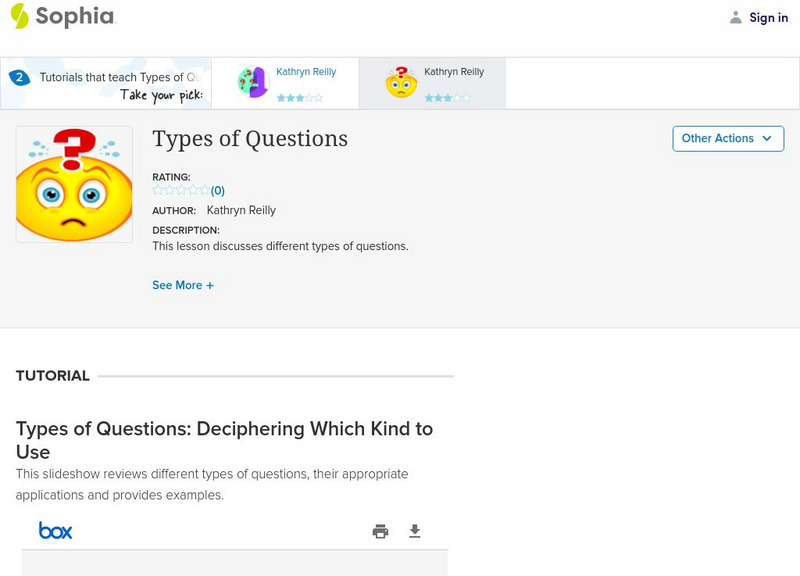

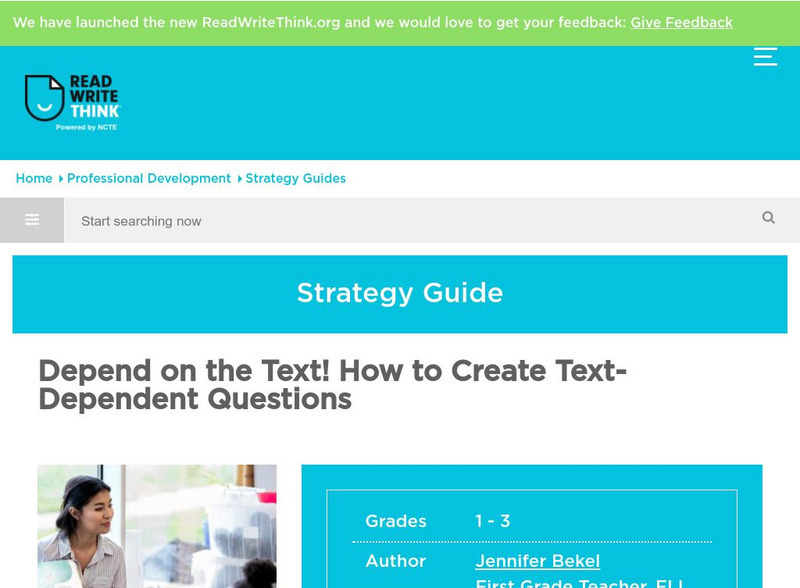


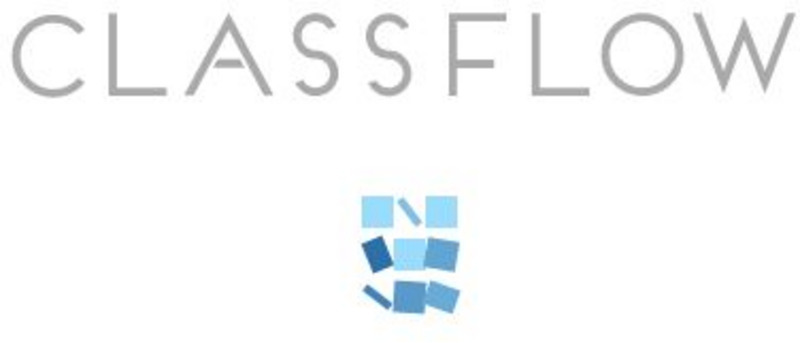
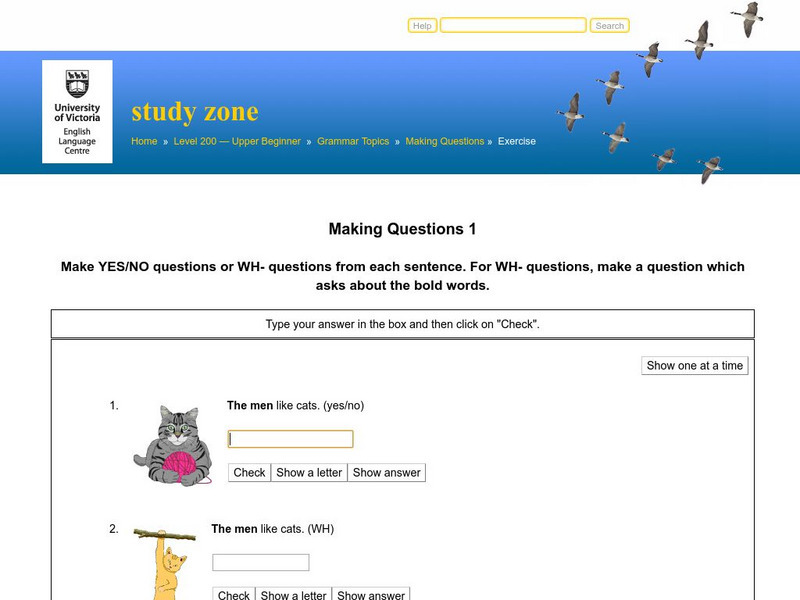
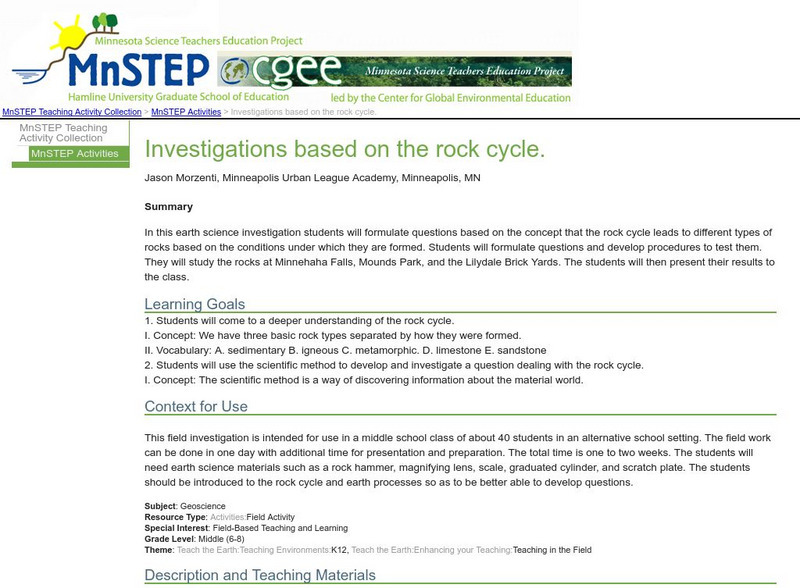


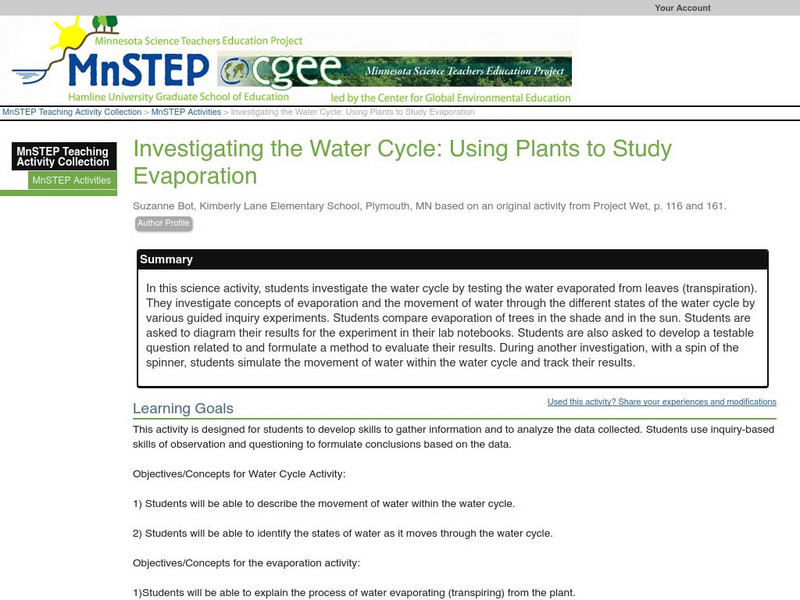
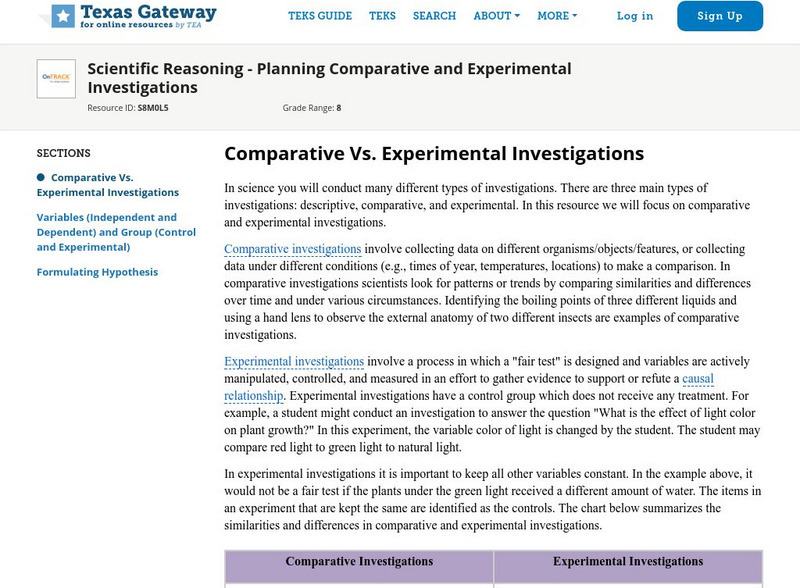




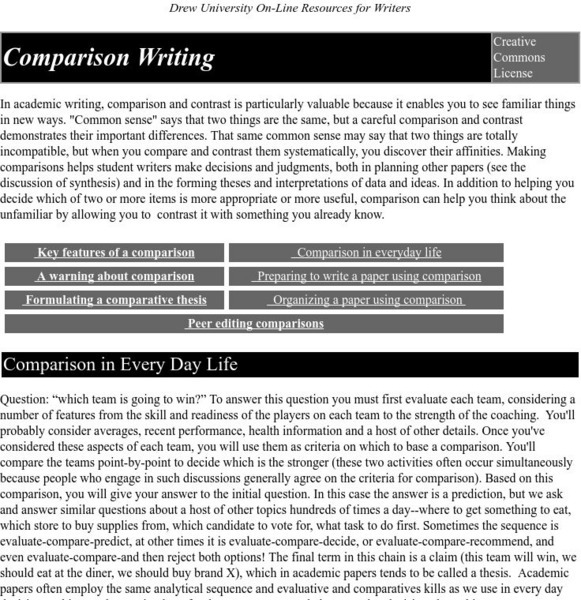
![Sun Associates: 3 Steps for Technology Evaluation [Pdf] Handout Sun Associates: 3 Steps for Technology Evaluation [Pdf] Handout](https://static.lp.lexp.cloud/images/attachment_defaults/resource/large/FPO-knovation.png)